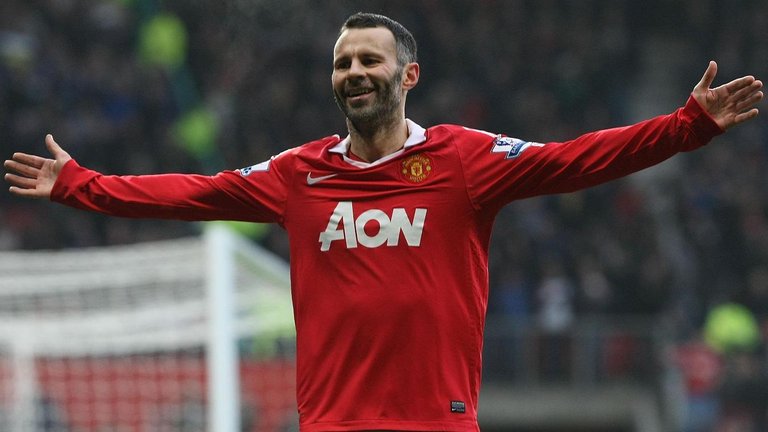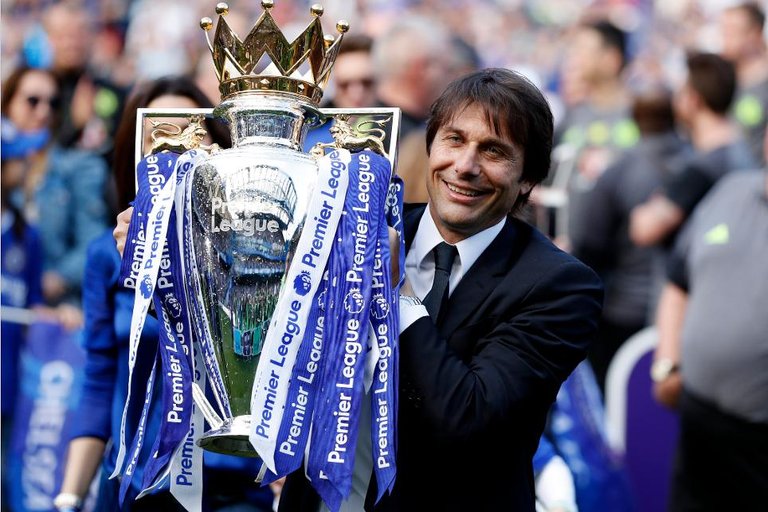The 2016/17 season marks the 25th of the Premier League after its formation in 1992.
After numerous discussions with football authorities, players and television broadcasters, the First Division clubs resigned from the Football League in May 1992 and the Premier League was formed with the inaugural campaign starting on Saturday 15 August of that year.
Below, each of the 24 seasons has been charted with the story of how the titles were won and the players who starred. From 2011/12's incredible finale, to Arsenal's "Invincibles", as well as each of Manchester United's record 13 triumphs, find out more about the rich history of the Premier League.
In the opening season of 1992/93, 22 clubs competed in the competition, with Brian Deane of Sheffield United scoring the first goal in what was known at the time as the FA Premier League.
The inaugural members of the Premier League were: Arsenal, Aston Villa, Blackburn Rovers, Chelsea, Coventry City, Crystal Palace, Everton, Ipswich Town, Leeds United, Liverpool, Manchester City, Manchester United, Middlesbrough, Norwich City, Nottingham Forest, Oldham Athletic, Queens Park Rangers, Sheffield Utd, Sheffield Wednesday, Southampton, Tottenham Hotspur, and Wimbledon.
Premier League Roll of Honour
2016/17 Chelsea
2015/16 Leicester City
2014/15 Chelsea
2013/14 Manchester City
2012/13 Manchester United
2011/12 Manchester City
2010/11 Manchester United
2009/10 Chelsea
2008/09 Manchester United
2007/08 Manchester United
2006/07 Manchester United
2005/06 Chelsea
2004/05 Chelsea
2003/04 Arsenal
2002/03 Manchester United
2001/02 Arsenal
2000/01 Manchester United
1999/00 Manchester United
1998/99 Manchester United
1997/98 Arsenal
1996/97 Manchester United
1995/96 Manchester United
1994/95 Blackburn Rovers
1993/94 Manchester United
1992/93 Manchester United
A total of 47 clubs have played in the Premier League since its inception, with Arsenal, Chelsea, Everton, Liverpool, Man Utd, and Spurs participating in every campaign to date. Brighton & Hove Albion and Huddersfield Town will make that figure 49 when the 2017/18 campaign gets under way in August.
At the end of each season, the bottom three clubs are relegated, with three promoted clubs from the Football League's Championship replacing them. The only exception to this was in the 1994/95 season when the League decided to reduce the number of clubs to 20. As a result, Crystal Palace joined Norwich, Leicester City and Ipswich in being relegated from the Premier League at the end of the 1994/95 season, with only two clubs replacing them from Division One, as the Championship was known then.
Apart from the opening campaign in 1992/93, every season of the Premier League has had a title sponsor. From the 1993/94 season, England’s top flight was known as the FA Carling Premiership, before the sponsorship changed in 2001 to Barclaycard until 2004.
The title of the competition then changed to the FA Barclays Premiership, with this being amended to Barclays Premier League ahead of the 2007/08 campaign.
Season 2015/16 marked the final campaign of a title sponsor arrangement, with the competition name becoming Premier League from 2016/17.
Manchester United were the first winners of the competition, finishing 10 points clear of Aston Villa, and have been PL champions on 13 occasions in total. Blackburn won the title once, in 1994/95, while Arsenal triumphed in 1997/98, 2001/02 and 2003/04.
Chelsea became the fourth club to win the PL, in 2004/05, and have since gone on to claim the title four more times, 2005/06, 2009/10, 2014/15 and the most recent in 2016/17. Man City have won the title twice, securing the trophy in dramatic fashion in 2011/12 with a goal in stoppage time of the final day, and again in 2013/14.
Leicester are the latest and sixth club to win the Premier League, completing a remarkable title triumph a year after a successful battle against relegation.
The most successful manager in the competition is Sir Alex Ferguson who has guided Manchester United to all their Premier League successes. He also holds the record for being the longest serving manager in the Premier League, spending 21 years at Old Trafford since its inception in 1992 before retiring at the end of the 2012/13 season.

Ryan Giggs participated in every title-winning year for Manchester United and the Welshman has also played the most matches in the Premier League, amassing 632 appearances.
Former Newcastle United, Blackburn Rovers and Southampton forward Alan Shearer is the Premier League top scorer with 260 goals and is the only player to surpass the 200 mark.
From the 2001/02 season, clubs who finish in the top four places qualify for the UEFA Champions League, while the team ending the campaign in fifth get to play in the UEFA Europa League. Further places can become available to teams in sixth and seventh depending on whether teams in the top five win the League Cup or FA Cup.
There has been an increase in English representation in Europe since the start of the Premier League, when, in the opening season, only the champions qualified for the UEFA Champions League, with the second and third-placed clubs entering the UEFA Cup, as the UEFA Europa League was then known.

Hi! I am a robot. I just upvoted you! I found similar content that readers might be interested in:
https://www.premierleague.com/history
Get a like @cheetah